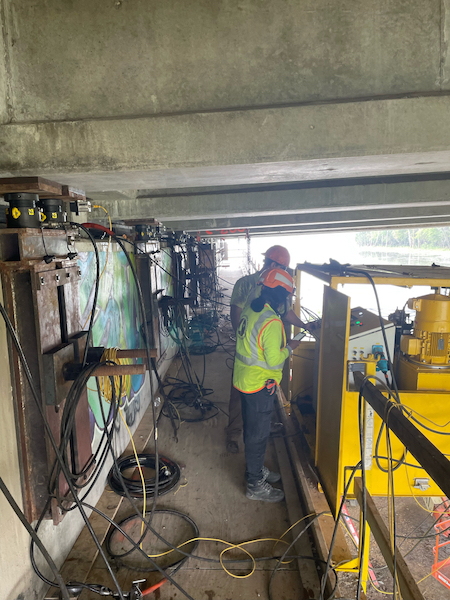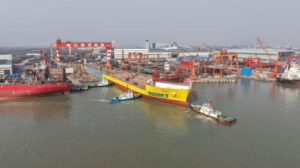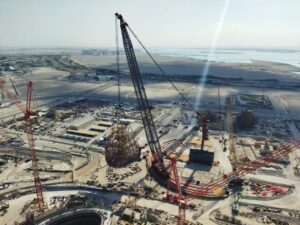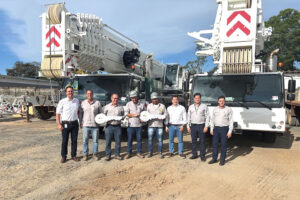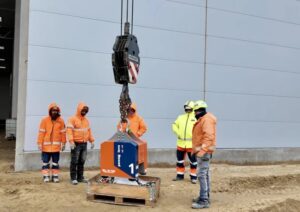Critical maintenance on the I-494 Minnesota River Bridge is underway by Lunda Construction Co., using the Enerpac EVO synchronous lifting system to facilitate the reconstruction of bridge bearings. The 43-year-old bridge, a vital connection between Bloomington, Eagan, and Mendota Heights, required these essential repairs to safely support traffic flow near the Minneapolis-Saint Paul International Airport.
Awarded a $62 million contract, Black River Falls-based Lunda Construction Co. is addressing various structural updates, including pavement repair, replacement of bridge joints, deck and railing repairs, drainage improvement, and bearing reconstruction.
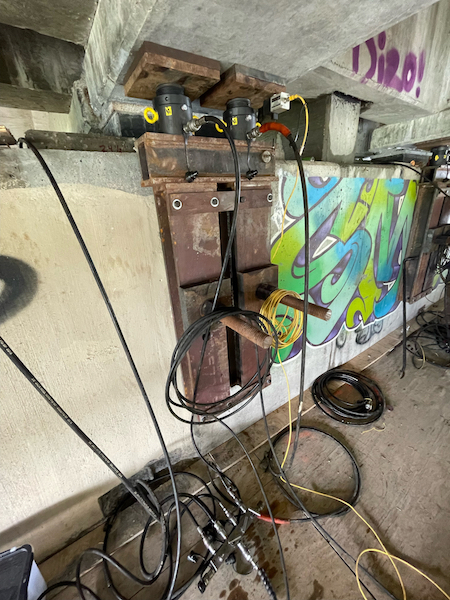
The bridge bearings, located on each pier, play a crucial role in transferring loads from the bridge decks to the piers, reducing stress on the decks. The Minnesota River Bridge, spanning 1,374 meters with 34 supporting piers, is undergoing bearing replacements one pier at a time. Lunda Construction Co. employed twelve pairs of Enerpac LPL-602 hydraulic cylinders, arranged in two rows of 12 lifting points on each pier, to lift sections of the 18-meter-wide bridge deck.
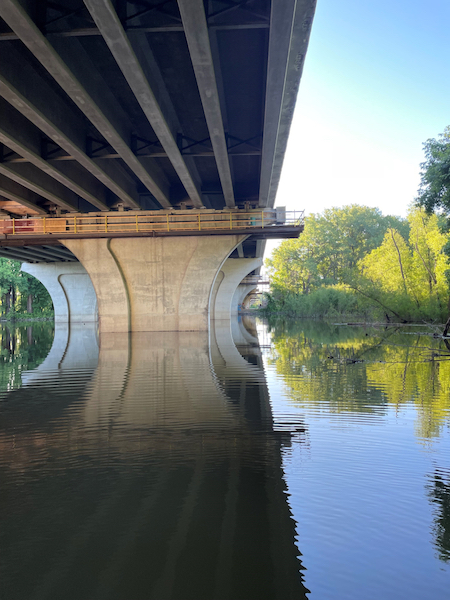
By pairing each cylinder with the Enerpac EVO system, engineers achieved precise pressure control across all jacking cylinders, ensuring a synchronous lift of the bridge decks. For more complex tasks like rocker bearing replacement, the system enabled higher lifts, allowing better access for additional repairs. Once lifted, the system’s locking feature permitted bearing replacement, concrete repair, and painting of the bearing plates without continuous system attachment.
“The Enerpac EVO system has been a game-changer for this project,” said Max Byzewski, Project Engineer at Lunda Construction Co. “Its synchronization capability is crucial given the limited flexural capacity of the deck. Plus, by tracking load distribution across each jack, we gain insights into why certain girders—especially fascia and center girders—don’t lift as easily.”


